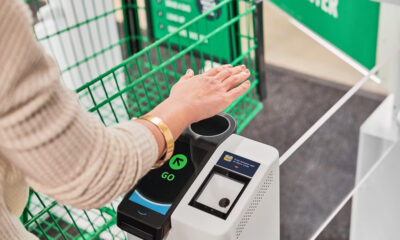News
Bedu Has Built A Metaverse Of The UAE’s Planned Mars Trip
The simulation, known as Metaverse Project 2117, hopes to host 100 million users over the next 10 years.

Bedu, a Dubai-based start-up focused on metaverse projects, has unveiled a new virtual environment showcasing the UAE’s future space exploration plans, including the proposed mission to Mars.
The project relies heavily on blockchain technology and decentralized hosting to enable the company to deliver a high-quality virtual experience. The project is known as “2117”, after the UAE’s planned Mars 2117 initiative, which aims to create a habitable colony on the red planet known as the “Mars Scientific City”.
The Mars metropolis will have food laboratories and its own water, food and energy harvesting technologies, using 3D printing to help overcome some of the complexities of building in such a harsh environment.
Earlier this week, Bedu signed an agreement with the Mohammed bin Rashid Space Center, which will assist Bedu in developing its unique metaverse, which will function like a real-life economy, with all the infrastructure and regulatory framework needed over the coming years.
“Mars is a destination aligned with [the UAE’s] vision and direction. Our focus is on creating a world where people can socialize, network, and live together without differentiating race, culture, and religion. […] As with any technology, it will impact multiple pillars, and the economic factor is one of the most important pillars,” says Amin Al Zarouni, chief executive of Bedu.
Also Read: Saudi Arabia To Send First Female Astronaut Into Space By 2023
The metaverse is part of the internet’s transition to Web3, which relies heavily on blockchain and decentralization while focusing on openness and greater user utility. The result is the ability to create entire 3D digital worlds, and the UAE, in particular, has taken significant steps to promote the technology, including the development of the Dubai Metaverse Strategy, which aims to create 40,000 jobs and pump $4 billion into the UAE’s economy over the next five years.
Despite rapid progress, Mr. Al Zarouni of Bedu is keen to point out that the metaverse is still in its early stages, but is estimated to hit the mainstream in the next 5-10 years.
News
Mamo Completes $3.4M Funding Round To Enhance Fintech Services
The startup will use the influx of cash to expand into Saudi Arabia and across the wider GCC while improving its product offering.

UAE-based fintech Mamo has announced the completion of a $3.4 million funding round that will help the startup extend its market presence and improve its product offering. Investors included 4DX Ventures, the Dubai Future District Fund and Cyfr Capital.
Mamo’s platform offers “payment collection, corporate cards and expense management” to help small and medium-sized businesses consolidate and streamline their operations. With the latest influx of capital, Mamo will further develop its comprehensive suite of services and begin testing its product lines in Saudi Arabia, further extending its footprint across the GCC.
Imad Gharazeddine, co-founder and CEO of Mamo, stated: “We’ve been in the market for a while now and are incredibly proud of what our team has achieved. The holistic and expansive nature of our product offering has helped us continue to grow sustainably. This additional funding will allow us to reach our medium-term goals even faster. The support from new and existing investors is a testament to our strong expertise and the ability to deliver on our customer promise”.
Daniel Marlo, General Partner of lead investor 4DX Ventures, added: “We have immense trust in Imad’s vision, leadership and Mamo’s innovative approach to provide a user-friendly and comprehensive financial solution for SMEs that makes financial management more accessible and efficient. We are proud to partner with them and support their mission”.
Also Read: A Guide To Digital Payment Methods In The Middle East
Amer Fatayer, Managing Director of Dubai Future District Fund’s investment team, also commented: “Mamo’s localized product lines serve as an infrastructure for SME payments and spend management in UAE, a segment that is underserved by the country’s current banking infrastructure. The team has taken a product-first approach to consolidating SMEs’ financial journeys and building a fintech solution deeply embedded in a business’s core operations”.
To date, Mamo has raised around $13 million in investment funding and now boasts a team of 30 people. The company’s intuitive financial services platform has allowed over 1,000 businesses to consolidate their financial operations and significantly reduce payment fees.
-

 News4 weeks ago
News4 weeks agoAmazon Prime Day 2024: Get Ready For 6 Days Of Amazing Deals
-

 News4 weeks ago
News4 weeks agoSamsung Unpacked 2024: What To Expect From The July 10 Event
-

 News4 weeks ago
News4 weeks agoCoursera Report Shows Surge In UAE Interest In AI Upskilling
-

 News4 weeks ago
News4 weeks agoMeet Dubai’s Groundbreaking Smart Robot Delivery Assistant













